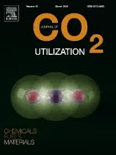
Journal of CO2 Utilization
Scope & Guideline
Transforming carbon into opportunity.
Introduction
Aims and Scopes
- CO2 Capture and Storage Technologies:
Research on methods and technologies for capturing CO2 from various sources, including industrial emissions and direct air capture, emphasizing efficiency and cost-effectiveness. - CO2 Conversion Processes:
Innovative approaches to converting CO2 into useful chemicals and fuels, involving catalytic, electrochemical, and photochemical methods. - Material Development for CO2 Utilization:
Exploration of new materials, such as metal-organic frameworks (MOFs), zeolites, and nanocomposites, designed for enhanced CO2 adsorption, separation, and conversion. - Sustainable Practices and Life Cycle Assessment:
Studies assessing the environmental impact and sustainability of CO2 utilization technologies, including life cycle analyses to evaluate the overall benefits and trade-offs of proposed methods. - Integration of CO2 Utilization in Industrial Processes:
Research on the integration of CO2 utilization technologies into existing industrial processes, such as cement production and energy generation, to minimize carbon footprints. - Innovative Catalysts and Reaction Mechanisms:
Development of advanced catalysts and in-depth studies of reaction mechanisms that facilitate CO2 conversion, highlighting novel approaches and methodologies.
Trending and Emerging
- Electrocatalytic and Photocatalytic CO2 Reduction:
There is a growing emphasis on electrocatalytic and photocatalytic methods for reducing CO2 to hydrocarbons and alcohols, driven by advancements in materials science and nanotechnology. - Integration of CO2 Utilization with Renewable Energy:
Research increasingly focuses on integrating CO2 utilization processes with renewable energy sources, such as solar and wind, to create sustainable and circular economic systems. - Biological CO2 Utilization:
Emerging interest in biotechnological approaches for CO2 utilization, including microbial electrosynthesis and algal biofixation, highlights the potential for biological systems to convert CO2 into valuable products. - Advanced Materials for CO2 Capture:
The development of new and advanced materials, such as hybrid and multifunctional adsorbents, is gaining traction, focusing on enhancing the efficiency and selectivity of CO2 capture. - Techno-Economic and Life Cycle Assessments:
There is an increasing trend towards conducting comprehensive techno-economic and life cycle assessments of CO2 utilization technologies to evaluate their feasibility and environmental impact.
Declining or Waning
- Traditional Chemical Processes:
Interest in conventional chemical processes for CO2 utilization, such as simple thermal catalytic reactions, has diminished as researchers explore more innovative and efficient methods. - Basic Theoretical Studies:
The journal has seen a reduction in the publication of purely theoretical studies that do not offer practical applications or experimental validation, with a stronger emphasis on applied research. - Single-Use Materials:
Research focused on single-use or less sustainable materials for CO2 capture and conversion is declining as the emphasis shifts towards more sustainable, recyclable, and multifunctional materials. - Low-Temperature CO2 Conversion:
There is decreasing interest in low-temperature CO2 conversion processes, as researchers increasingly focus on high-temperature and plasma-assisted methods that offer greater efficiency and product selectivity. - Niche Applications:
Research on niche applications of CO2 utilization that lack broad industrial relevance is becoming less frequent, with a focus shifting towards scalable and economically viable solutions.
Similar Journals

Carbon Capture Science & Technology
Shaping a Greener Future: Insights into Carbon Capture ScienceCarbon Capture Science & Technology, published by Elsevier, is an esteemed, peer-reviewed, open access journal dedicated to advancing research in the growing fields of chemical engineering, energy, and environmental science. With an ISSN of 2772-6568, this influential journal has established itself since its inception in 2021 and continues to make notable contributions, reflected in its impressive Q1 rankings across multiple categories, including a #14 rank in Environmental Science and a #13 rank in Chemical Engineering as of 2023. The journal aims to provide a platform for the dissemination of innovative carbon capture technologies and methodologies that address vital climate challenges, ensuring broad accessibility for researchers, professionals, and students alike. By embracing open access, Carbon Capture Science & Technology fosters a collaborative approach to knowledge sharing, making it an indispensable resource for those committed to sustainability and environmental preservation.
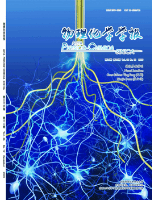
ACTA PHYSICO-CHIMICA SINICA
Pioneering insights in Physical and Theoretical Chemistry.ACTA PHYSICO-CHIMICA SINICA, published by PEKING UNIV PRESS, is a prestigious journal focused on the fields of Physical and Theoretical Chemistry, boasting an impressive impact factor as reflected in its 2023 Q1 ranking in this domain, placing it among the top 5% of journals in the subject area. With its origins dating back to 1996, the journal serves as a vital platform for the dissemination of cutting-edge research, encompassing a broad range of topics from molecular dynamics to thermodynamics and quantum chemistry. Researchers, professionals, and students are provided with valuable insights through peer-reviewed articles, making it an indispensable resource for advancing knowledge and sparking innovation in the discipline. While this journal does not offer Open Access options, its rigorous editorial standards and influential contributions continue to shape the landscape of Physical and Theoretical Chemistry globally. For submissions or further information, please refer to the editorial office at Peking University, Chemistry Building, Beijing, China.

ADSORPTION-JOURNAL OF THE INTERNATIONAL ADSORPTION SOCIETY
Pioneering Knowledge in Surfaces and InterfacesADSORPTION: Journal of the International Adsorption Society is a premier peer-reviewed journal, published by Springer, dedicated to advancing the understanding of adsorption phenomena across a wide range of applications in chemical engineering, chemistry, and surfaces and interfaces. With an impressive impact factor and renowned rankings—being positioned in the top quartile for Chemical Engineering and high percentiles in Chemistry and Physics—this journal serves as a vital resource for researchers, professionals, and students aiming to keep abreast of cutting-edge developments from 1995 through 2024 and beyond. The journal is pivotal in facilitating the dissemination of knowledge, fostering interdisciplinary collaboration, and showcasing innovative research in adsorption science. Although it does not operate under an open access model, its importance within the academic community is undeniable, providing significant insights into both theoretical and practical aspects of adsorption processes.
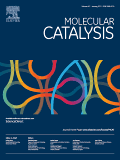
Molecular Catalysis
Exploring Innovations in Molecular CatalysisMolecular Catalysis, published by Elsevier in Netherlands, is a premier academic journal that explores the cutting-edge domain of catalytic science. With an impressive impact factor and classified in the top quartiles (Q2) in various fields such as Catalysis, Physical and Theoretical Chemistry, and Process Chemistry and Technology, this journal stands as a significant resource for researchers and professionals committed to advancing the understanding of catalysis processes. Since its inception in 2017, it has been pivotal in publishing high-quality, peer-reviewed research that addresses crucial challenges and innovations in molecular catalysis. The journal is fully Open Access, allowing unrestricted access to its articles, thus fostering a wider dissemination of knowledge. Recognized for its rigorous editorial standards, it features works that push the boundaries of current scientific understanding, making it an essential platform for students and academics alike to share and grow in their expertise.
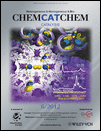
ChemCatChem
Leading the Charge in Catalysis and Chemical Discovery.ChemCatChem is a leading international journal published by WILEY-V C H VERLAG GMBH that has been making significant contributions to the fields of catalysis, inorganic and organic chemistry, as well as physical and theoretical chemistry since its inception in 2009. With an established reputation for excellence, this journal holds commendable rankings in various categories, including Q1 in Inorganic Chemistry and Q1 in Organic Chemistry, demonstrating its pivotal role in advancing scientific knowledge and innovation. Notably, it has achieved a high Scopus ranking, securing 10th place out of 79 in Inorganic Chemistry, among others, showcasing its influence and quality. Although open access options are not available, the journal offers cutting-edge research articles, reviews, and insights that are vital for researchers, professionals, and students aiming to stay at the forefront of chemical science. With its address rooted in Weinheim, Germany, and convergence projected to continue until 2024, ChemCatChem remains a dynamic platform for disseminating vital advancements within the chemical community.

CCS Chemistry
Pioneering Discoveries in the World of ChemistryCCS Chemistry, published by the esteemed Chinese Chemical Society, is a leading open-access journal dedicated to advancing the field of chemistry. Since its inception in 2019, the journal has rapidly gained recognition, achieving a remarkable impact factor that places it in the prestigious Q1 category in Chemistry (Miscellaneous) as of 2023. With a Scopus ranking of #41 out of 408 in General Chemistry, CCS Chemistry represents the top 10th percentile in its category, reflecting its commitment to high-quality research and innovation. The journal serves as a vital platform for researchers and professionals to share their findings, showcase cutting-edge methodologies, and engage with the latest developments in various chemistry subfields. Accessible to a global audience, CCS Chemistry ensures that groundbreaking research is available without barriers, making it an indispensable resource for students and academics aiming to stay at the forefront of chemical sciences. For further details, submissions, and access to published articles, please visit the journal's website.
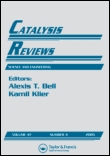
CATALYSIS REVIEWS-SCIENCE AND ENGINEERING
Transforming Ideas into Catalytic SolutionsCATALYSIS REVIEWS - SCIENCE AND ENGINEERING, published by Taylor & Francis Inc, is a leading journal in the field of catalysis, providing a vital platform for the dissemination of rigorous research and comprehensive reviews from 1968 to the present. With an impressive Q1 ranking in multiple categories, including Catalysis and Chemistry, this journal stands out as an essential resource for professionals, researchers, and students alike. Its high impact factor and esteemed Scopus ranks — including 3rd in Chemical Engineering: Process Chemistry and Technology — highlight the journal's influence and prestige within the scientific community. While primarily a subscription-based publication, the journal’s commitment to advancing the understanding of catalytic processes continues to foster innovation in various industrial applications, making it indispensable for anyone engaged in the fields of chemical engineering and applied chemistry.

JOURNAL OF THE ELECTROCHEMICAL SOCIETY
Fostering Collaborative Progress in Electrochemical ScienceJOURNAL OF THE ELECTROCHEMICAL SOCIETY, published by the ELECTROCHEMICAL SOCIETY INC, is a leading peer-reviewed academic journal dedicated to advancing the field of electrochemistry and its myriad applications. With an ISSN of 0013-4651 and E-ISSN of 1945-7111, this esteemed journal has been a pivotal platform for research since its inception in 1948, with convergence periods allowing for a rich historical context of study through to 2024. Recognized for its high impact, it holds a noteworthy Q1 ranking in several categories including Condensed Matter Physics and Materials Chemistry, and it is Q2 ranked in both Electrochemistry and Renewable Energy. This journal features a range of articles that encompass both theoretical and experimental advancements, making it a crucial resource for researchers, professionals, and students keen on exploring cutting-edge developments in materials science, energy solutions, and sustainable technologies. Although it is not an open access journal, its rigorous standards ensure that published work significantly contributes to the body of knowledge within its fields, fostering innovative research and collaborative progress.

Catalysts
Advancing Catalysis Research for a Sustainable FutureCatalysts is a leading academic journal in the field of catalysis, published by MDPI since 2011 and well-regarded for its commitment to open access publishing. Based in Switzerland, this journal delivers innovative research and reviews that span various aspects of catalysis, from heterogeneous and homogeneous catalysis to the development of novel catalytic systems. With a commendable impact factor and a notable Q2 ranking in both Catalysis and Physical and Theoretical Chemistry categories, Catalysts plays a critical role in advancing the scientific discourse in these fields. The open-access model ensures that all research articles are readily accessible to researchers and professionals worldwide, fostering collaboration and accessibility to high-quality scientific literature. As the journal continues to publish cutting-edge studies up to its convergence in 2024, it remains an essential resource for anyone involved in catalysis research, from seasoned professionals to emerging scholars.

KAGAKU KOGAKU RONBUNSHU
Empowering Future Innovators in Chemical ResearchKAGAKU KOGAKU RONBUNSHU is a distinguished journal published by the SOC CHEMICAL ENG JAPAN, focusing on the interdisciplinary realms of chemical engineering and chemistry since its inception in 1975. With a commitment to advancing knowledge in these fields, the journal has established itself as a critical forum for researchers, professionals, and students alike, contributing to the understanding and application of chemical processes and materials sciences. Although it operates under a traditional publication model, the journal garners attention within the academic community, reflected in its Q3 rankings in both Chemical Engineering and Chemistry categories as of 2023. With the journal's ISSN 0386-216X and a comprehensive coverage spanning nearly five decades, it remains an essential resource for contemporary chemical research and developments, addressing ongoing challenges and innovative solutions in various applications. The journal invites submissions that reflect the latest advancements and insights in these fields, striving to foster a vibrant academic dialogue and support future innovations.